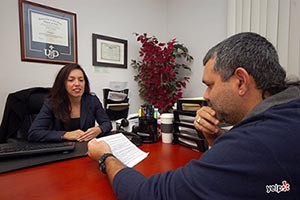Filing for Chapter 7 bankruptcy can be a daunting process, and understanding the associated costs is crucial. One of the most significant expenses is the attorney’s fee. This guide breaks down the factors influencing how much a lawyer charges for Chapter 7 bankruptcy, providing clarity and helping you navigate this financial challenge.
Many people facing financial difficulties consider bankruptcy as a way to get a fresh start. While it can provide significant relief, it’s essential to understand all the costs involved, including legal fees. Understanding these costs helps you budget effectively and make informed decisions.
Chapter 7 Bankruptcy Attorneys Fees and Costs Explained
The cost of a Chapter 7 bankruptcy lawyer can vary significantly. Generally, attorney’s fees for Chapter 7 bankruptcy can range from as low as $1,500 to $3,500 or more, depending on the complexity of the case and location. It’s important to note that this does not include the court filing fee, which is currently $338.
Several factors determine the specific attorney’s fees for your Chapter 7 bankruptcy case. Understanding these factors will allow you to better estimate the potential cost and discuss them with prospective attorneys.
Factors Influencing Chapter 7 Bankruptcy Attorney Fees
Several elements can impact the final cost of hiring a bankruptcy lawyer. These include:
- Number of Creditors: The more creditors you have, the more complex the case becomes, potentially increasing the attorney’s fees due to the extra paperwork and administrative work.
- Total Amount of Debt: A higher debt load can indicate a more complicated financial situation, which may require more extensive legal work and increase the overall cost.
- Means Test Analysis: The means test determines your eligibility for Chapter 7 bankruptcy. If your income is above the state median, a more detailed analysis is required, adding to the attorney’s workload.
- Joint or Single Filing: Filing jointly with a spouse is generally more expensive than filing individually because it involves a more comprehensive review of both individuals’ financial situations.
- Urgency of the Case: If you are facing immediate actions such as wage garnishment or a bank levy, the attorney may need to expedite the filing process, potentially leading to higher fees.
- Anticipated Issues and Problems: If your case is expected to have complications, such as disputes over asset ownership or potential objections from creditors, the attorney may charge more to account for the additional work.
Understanding the Fee Structure
Bankruptcy attorneys typically operate under one of two fee structures:
- Flat Fee: This is the most common arrangement for Chapter 7 bankruptcy cases. The attorney charges a fixed amount for handling the entire case, from initial consultation to discharge.
- Hourly Rate: While less common for Chapter 7, some attorneys may charge an hourly rate, especially if the case is particularly complex. This means you pay for the actual time the attorney spends on your case.
It is essential to clarify the fee structure during your initial consultation with any prospective attorney. Make sure you understand what is included in the fee and if there are any potential additional costs.
Additional Costs to Consider
Besides attorney fees and the court filing fee ($338), be aware of other potential expenses:
- Credit Counseling and Debtor Education Courses: These courses are mandatory before filing and after filing for Chapter 7 bankruptcy. They typically cost between $25 and $50 each.
- Copying and Mailing Costs: Some attorneys may charge for these administrative expenses.
- Expert Witness Fees: In rare cases, you may need to hire an expert witness to testify on your behalf, which can add significant costs.
Finding Affordable Chapter 7 Bankruptcy Legal Representation
While Chapter 7 bankruptcy can be expensive, there are ways to find affordable legal help:
- Free Consultations: Many bankruptcy attorneys offer free initial consultations. Take advantage of these to discuss your case and get a fee estimate from multiple attorneys.
- Payment Plans: Some law firms offer payment plans to make the fees more manageable.
- Legal Aid Societies: Check with your local legal aid societies for free or low-cost legal assistance.
- Non-Profit Organizations: Certain non-profit organizations provide free or reduced-cost bankruptcy services to low-income individuals.
The Value of Hiring a Chapter 7 Bankruptcy Attorney
While it might be tempting to file for Chapter 7 bankruptcy without an attorney to save money, it is important to consider the potential risks. An experienced attorney can guide you through the complex legal process, ensure you understand your rights and responsibilities, and help you avoid costly mistakes.
An attorney can:
- Assess Your Eligibility: Determine if Chapter 7 is the right option for you and whether you meet the eligibility requirements.
- Protect Your Assets: Help you identify and protect your exempt assets.
- Navigate Complex Legal Issues: Handle any complications that arise during the bankruptcy process.
- Represent You in Court: Attend the 341 meeting of creditors and represent you in any court hearings.
Conclusion
Understanding the costs associated with Chapter 7 bankruptcy, particularly attorney fees, is crucial for making informed decisions. By researching different attorneys, understanding the factors that influence fees, and exploring options for affordable legal representation, you can navigate the bankruptcy process with confidence and achieve a fresh financial start. Remember to prioritize clear communication with your attorney to ensure transparency and avoid surprises throughout the process.
